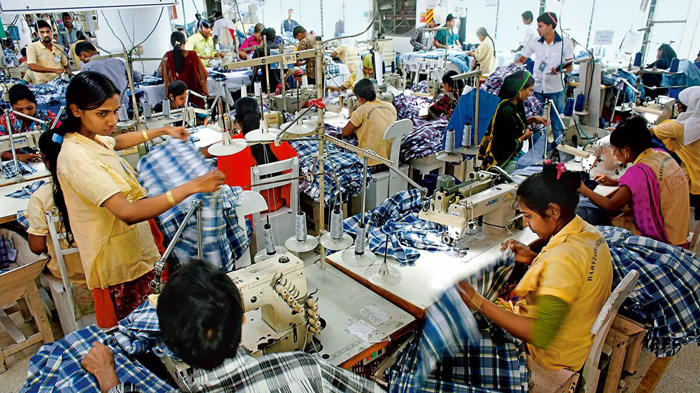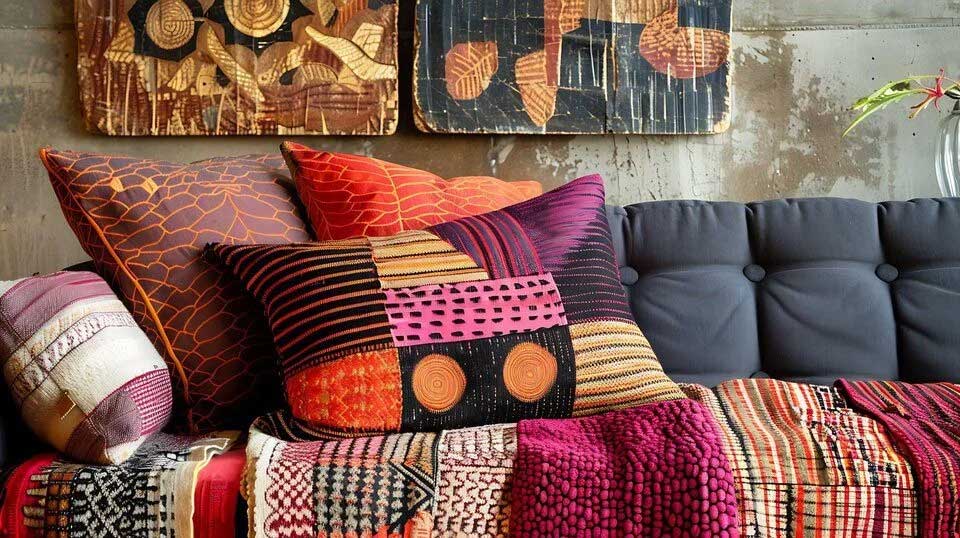
Following the reduction of China’s share in the global textile and clothing trade coupled with the anticipated GSP Plus status for Pakistan by the EU in early 2014 Pakistan can earn an additional $700 million per year. Industry sources reveal Pakistan is working to get the Generalized System of Preferences (GSP) plus status by January, 2014 from EU which will allow textile products greater access to those markets. The sole purpose of GSP scheme is to help poor countries by making it easier for them to export their products to EU at reduced tariffs.
In FY13, textile contributed 53 per cent to Pakistan total exports of $24.6 billion. Textile sector will gain as EU is likely to grant GSP plus status to Pakistan. Currently, any importer in EU who imports Pakistani textile products has to pay 11 per cent duty, which makes Pakistani products costly.
The new GSP legislation has set enhanced monitoring of the conventions (every two instead of three years) and with scrutiny by the European Parliament. GSP plus offers preferences over and above the standard GSP by covering roughly 70 more lines mostly duty-free. Pakistan is currently eligible for the GSP plus status and most likely will get the status in January, 2014. Neighbouring countries like India, Bangladesh are holding GSP standard which offer partial reduction in tariff and Afghanistan has EBA status which allows it to export everything but arms absolutely duty-free and quota-free.
Italian textile industry has still to recover from the economic slowdown reveals latest data. The first part of 2013 shows a negative trend for the industry, with signs of a slight recovery during the second quarter of 2013. According to ISTAT data on industrial production (adjusted for the work calendar), during the first and second quarter of 2013, the Italian textile industry (excluding knitted fabrics) suffered a setback when compared to the same period in 2012, registering negative figures for the 7th consecutive quarter. The first quarter of 2013 was characterized by a -3.3 per cent production decrease, while the second quarter showed weak improvement, despite the negative zone (-0.4 per cent). It has been observed that in the first half of 2013, the Italian textile industry registered a slight production slowdown (-1.8 per cent).
The entire textile industry follows a similar trend as the weaving sector, holding steady during the 2nd quarter and then beginning to stabilize, as in 2012. During the first half of the current year, the textile industry experienced a slight decrease in production (-2.1 per cent).
During the first five months of 2013, Italian fabric export remained in the negative. From January to May 2013, foreign sales of Italian fabrics registered a slight decrease amounting to -3.4 per cent in value and -4.0 per cent in quantity. A minor decline characterized silk fabric import (-3.7 per cent) during the first five months of 2013. Considering these results, the total turnover for the January-May 2013 period, was only slightly below that of the previous year (934 million euros to 846 million euros, a reduction of 88 million euros).
Among the top 10 market outlets, only Turkey and Hong Kong were in the positive zone, increasing by +12.8 per cent and +1.0 per cent, respectively. Even though Germany remains the primary market outlet for Italian fabrics, there was a slight decline in export (-4.1 per cent) as there was to France (-2.6 per cent).
During the first five months of 2013, China is once again the leading supplier, covering 25.9 per cent of total fabric import, still in the positive zone (+0.4%). Turkey makes up +23 per cent (compared to -19.4 per cent registered last year). Fabric import from the Czech Republic and Pakistan has increased +5.3 per cent and +10.7 per cent respectively, while imports from Spain (-2.1 per cent) and India (-16.2 per cent) are in decline.
Libolon is a core brand of LeaLea Enterprise and Li Peng Enterprise who offer global services in both nylon and polyester. The services include polymerization, spinning, weaving, dyeing to post finishing processes. With 30 years of experience and fully automatic production lines for bulk production, Libolon is the best textile partner in Asia. Libolon develops RePET, recycled yarns and recycled fabrics, creating eco textiles that help protect the environment and natural ecosystems. These recycled yarns and recycled fabrics are made by recycling plastic bottles. Its features include free of petrochemicals, conserve natural resources, and reduce the environmental burden while still offering high-quality textile solutions. It can be used in any nearly any textile application.
Libolon’s innovative RePET solution and recycled yarns are more environmentally-friendly than traditional RePET products due to the elimination of the dyeing process. Using recycled fabrics and eco textiles, Libolon’s RePET-solution and rpet recycled yarns reduce emissions of GHG and COD, lower water consumption, and decrease the amount of chemicals involved in the production process. RePET-solution rpet recycled yarns also offer higher performance, including light-protection, water-protection, washing-protection, anti-UV, anti-aging, anti-weathering, and colour reproducibility properties. Libolon’s RePET-solutions is the best choice for recycled fabric and eco textile products.
The Taiwan Textile Research Institute (TTRI) showcased a range of cutting-edge textile innovations and research at the recent ‘2013 Textile International Forum and Exhibition’. The exhibition is a part of the Taipei Innovation Textile Application Show which runs at the Taipei World Trade Centre Nangang Exhibition Hall. The TTRI’s pavilion caught visitor’s attention with a great mountain vest mockup, symbolizing the recent establishment of Taiwan Outdoor Group (TOG), an organization that joins together more than 20 local outdoor gear brands.
“The image of TOG highlights Taiwan outdoor gear brands as a whole. When we go abroad to do promotions, we introduce Taiwan as our brand concept, rather than individual products, says TTRI Executive Vice President Lien Jung-shen. At present, TOG has 22 members, including well known names like Atunas, GoHiking and Global Spirit.
TOG Chairman Robin Hsu says, the market for outdoor gear is worth $6 billion in South Korea and $2 billion in China. “The potential growth for Taiwan’s outdoor gear market is big because it is only $0.2 billion now,” he said.
Apart from TOG, the TTRI also showcased innovations in fabrics, such as the iodine antimicrobial yarn, which incorporates organic iodine agents in its fibre, perpetuating the antibacterial effect. In the past, antibacterial agents were processed onto the finished cloth. However, the TTRI’s R&D team has succeeded in manufacturing yarns that are already antimicrobial, so that the textile remains germ-free at all times.
Uzbekistan, the sixth largest cotton producer, has been facing a boycott by western firms owing to the use of child labour during harvesting. But now it has cracked a new deal to export 300,000 tonnes of cotton fibre to China in a bid to explore new markets. The country has also allowed monitoring of its harvest by the International Labour Organisation (ILO), while the reports of forced labour continue to creep in even this year.
Apart from China, the country has initiated an agreement with Bangladesh to export 200,000 tonnes of fibre in August. The two Asian manufacturing hubs will together account for around five-sixths of Uzbekistan's total cotton fibre exports, which are expected to total around 600,000 tonnes this year.
Uzbekistan officials may finalise the agreement with China at a cotton industry fair in October, which will give a boost to China's share of the harvest from around 15 per cent to 50 per cent, making it the single largest buyer of Uzbek cotton. At the same time, the Uzbek government is keen to increase domestic processing of locally produced cotton to 50 per cent.
www.ilo.org
Jeanologia, the Spanish company and world leader in development of sustainable technologies for garment finishing will present its latest offerings at the Denim by PV Asia and Intertextile events in Shanghai. It aims to transform the Chinese textile production model into efficient, sustainable and automated process. Jeanologia developed textile laser that reproduces jeans wear and tear avoiding the use of harmful techniques that could damage health of the workers, allowing savings in energy water, chemicals and time, at the same time getting automated production. In addition, eco-G2 uses ozone washing and oxygen from the atmosphere, which helps in saving over 60 per cent water and energy and about 85 per cent in chemicals.
Enrique Silla, President of Jeanologia says, "Asian textile production is increasingly directed towards automation, productivity and social responsibility, the use of laser technology, E-soft and ozone developed by our company, will contribute to this goal.” Silla also stressed on the importance of transparency in the Chinese textile industry because, he feels the industry must be concerned about the environment, health of workers and sustainability. "What matters is not only the product itself but the way in which it is made, how it is done," he explains.
He also highlighted the importance of the partnership between Prosperity and Jeanologia to transform the Chinese market, and stated that "China will remain the world's leading producer of jeans this time thanks to the efficiency of sustainable technologies like laser treatments or using ozone instead of water.”
Fashion, Vintage and Who collections to be exhibited at both events, will allow visitors to know more about the multiple effects that can be achieved and compare the garments before and after application of textile finishing techniques. Fashion features the latest fashion trends adapted to laser, Vintage is a purist collection getting back to basics created by laser and ‘Who is using laser’, shows how the world's most recognized brands use laser and ozone technology of Jeanologia in their collections, either for a premium denim or a low cost collection.
Jeanologia products and solutions are currently being used in more than 45 countries including China, México, Colombia, Brazil, USA, Germany, Italy, Portugal, India, Russia, Japan, Morocco and Bangladesh.
The 16th edition of Milano Unica discovered new potential catering to sustainability issues. In an attempt to promote sustainability, Sustainability-lab.net; an online social network of textile and fashion professionals who are actively promoting sustainability in the fashion business invited a selected group of exhibiting companies to participate in a ‘Catalogue of Sustainable Fabrics and Accessories’.
The project, supported by Milano Unica, is breaking new ground for the Italian textile community and represents a roll-out, fine-tuning step to test market reactions that will be further developed at next editions of Milano Unica. The ‘Catalogue’ openly declares the parameters used in the evaluation and sustainable practices are summarized through easy-to-read icons in companies’ data sheets.
The catalogue was designed and created by Sustainability-lab with the support of Milano Unica. As Massimo Mosiello, Managing Director of Milano Unica says, “The catalogue does not cover completely the supply of sustainable fabrics and accessories showcased at Milano Unica yet. It is however a first positive test that allowed us to check ‘hands on’ companies’ sensitiveness about sustainability and to better understand the narrative of the companies’ strategies for sustainability. We are committed to ban green washing practices and to value actual engagement in sustainability. This first group of companies presented in the ‘Catalogue’ has cooperated with Sustainability-lab in developing an effective and meaningful language to frame in a concise but clear way companies’ commitment to sustainable practices."
Sustainability-lab project manager explained that the first step of the project led them to meet companies seriously committed to reducing environmental impact, to develop measures of social engagement, to use eco-friendly, renewable or recycled materials. “Our commitment is to widen the scope of the ‘Catalogue’, starting from next Milano Unica edition in September, in order to encompass a wider range of sustainable fabrics and accessories."
Groups representing various apparel manufacturers, brands and retailers in Africa and the US are calling for the swift renewal of the African Growth and Opportunity Act (AGOA) before its expiry in September 2015. Groups backing the calls for immediate renewal of AGOA include: African Cotton and Textile Industries Federation (ACTIF), American Apparel & Footwear Association (AAFA), National Retail Federation (NRF), Outdoor Industry Association (OIA), Retail Industry Leaders Association (RILA), and United States Association of Importers of Textiles and Apparel (USA-ITA).
As sourcing decisions are made many months in advance, the groups want AGOA to be renewed as soon as possible that is by 2013 and no later than 2014. Another goal is to see AGOA renewed for a longer period; at least 15 years to ensure the predictability necessary to support trade and investment decisions.
Short term renewals will not provide enough certainty to enable the industry to make capital intensive investment decisions necessary to attract textile investments or affect long term sourcing partnership decisions. Another call is for long-term renewal of the third country fabric provision, which has become central to AGOA.
Pakistan’s textile and clothing exports witnessed a growth of 9.99 per cent in the first quarter of the current fiscal compared to last year. Export proceeds from these sectors rebounded following substantial increase in export of raw cotton and value-added products, reveals data Pakistan Bureau of Statistics. Export of textile and clothing surged to $3.576 billion in July-Sept 2013 up from $3.251billion during the corresponding months of last year.
A sector-wise analysis showed that export of low value-added products, such as cotton yarn, was up by 8.55 per cent, cotton cloth 4.01 per cent, made-up articles 9.95 per cent, and other textile material 10.84 per cent in first three months of the current fiscal year over same months last year.
Depreciation of Pakistani currency is also one of the catalyst for export increase during the first quarter of the current fiscal year. In terms of rupees, exports proceeds witnessed a growth of 19.82 per cent in July-September 2013 this year from a year ago.
Cotton carded, yarn other than cotton yarn, towels and art silk products witnessed a negative growth in July-Sept 2013 over the same months last year. Exports witnessed a growth because of increase in export to the European markets owing to preferential market access on selected products.
The growth in yarn and fabric exports was mainly due to improved energy supply. Total export proceeds witnessed a growth of 9.23 per cent to $6.712 billion in July-Sept 2013 from $6.144 billion over the corresponding period of last year.
The International Finance Corporation (IFC) has launched the ‘Better Work Bangladesh’ (BWB) program to improve working conditions of thousands of readymade garment factories (RMG) workers and promote its competitiveness. BWB is part of Better Work global program funded by the governments of Australia, the Netherlands and Switzerland. The government of Bangladesh and Better Work have agreed to link the continuation of the program to progress made relating to specific commitments.
In a joint initiative with the International Labor Organization (ILO), the BWB will provide factory-level services including compliance assessment in line with national labor laws and international standards, and advisory and training services to improve the workers' working conditions.
BWB will build partnerships with the government, employers, unions, buyers, and other industry stakeholders. The goal of the program is to promote sustainable change in the sector by helping factories improve working condition and building capacity for better labor administration and industrial relations. The program will be funded by Switzerland and the United States.
By helping improve working conditions in RMG, BWB will not just put people first but will also improve productivity, safeguard jobs and investment, and promote growth of the sector.












